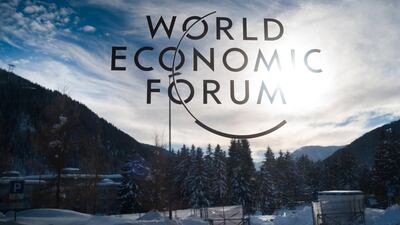On the eve of the annual gathering of political, business and media leaders in the alpine village of Davos, the World Economic Forum announced that the majority of people around the world still support globalisation.
The organisation released the results of a worldwide survey of 10,000 respondents on Sunday, saying that 76 per cent of those questioned believe in the power of countries working together for a common good.
These results, according to the Forum, show that “a clear majority of people in all regions of the world say they believe co-operation between nations is either extremely or very important”.
That is the defence of globalisation in the face of growing nationalism that the forum is expected to make through hundreds of sessions this week at its annual meeting.
On the question of countries sharing common goals, those in South Asia and sub-Saharan Africa were the most committed to collective global action, where 88 per cent share the same view. In the Middle East and North Africa, the figure matched the global average of 76 per cent.
However, only 61 per cent of Western Europeans and 70 per cent of North Americans consider co-operation to be extremely or very important. The majority of respondents, 57 per cent, said that immigration was good for their country.
In the Middle East and North Africa, the figure was higher at 60 per cent, while for South Asia it was 73 per cent.
The survey is part of a larger effort by the World Economic Forum to defend globalisation and secure it as the framing structure for the world in the 21st century.
The theme of this year’s annual meeting is Globalisation 4.0, mixing globalisation with the Fourth Industrial Revolution. As nationalism, protectionism and polarisation make headway through leaders such as US President Donald Trump, the annual meeting in Davos will be geared once more to defend globalisation.
Mr Trump’s decision to cancel his participation this year means the anti-globalisation message will largely be left to Brazilian President Jair Bolsonaro. With fears of a global recession in the next two years, global capitalism will also be under scrutiny at the meeting. Interestingly, this year will be the first for Cuba to have a minister present, as Rodrigo Malmierca Diaz, Minister for Foreign Trade and Foreign Investment, will be attending.
______________
World Economic Forum in Davos:
The social entrepreneur equipping youth with skills of the future
Opinion: Davos is a starting point for global action
New Economy Forum: UAE delegation to help find solutions to world’s most pressing problems
______________
Perhaps the biggest champion of globalisation is the founder and chairman of the forum, Prof Klaus Schwab himself. He is expected to caution against isolationism and protectionism when he officially opens the forum on Tuesday morning in the presence of dozens of heads of state and government, as well as chief executives from leading companies such as Uber, HSBC and Alphabet.
Reaching out to the 3,000 participants in the annual meeting last week, Prof Schwab sent an email titled “the Davos manifesto”. This manifesto features 10 pillars for dialogue, including one on a “new social narrative”. Prof Schwab states in the manifesto that “the world is at a crossroads”, warning that “we can continue the present trajectory of polarising views, increased conflicts and numerous problems”, which will at best lead to “permanent global crisis management”, or at worst “deteriorate into chaos”.
To avoid either scenario, Prof Schwab is calling for the option of Globalisation 4.0, which requires “shaping a global architecture in the age of the Fourth Industrial Revolution”. This may seem like a lofty endeavour, as many of the forum’s ideas are, however it may just stick. When he coined the phrase Fourth Industrial Revolution four years ago to describe the technological and societal revolution of the internet of things, it seemed like a tangent. Today it is ubiquitously used to describe the modern world. The founder of the organisation says in his manifesto that just as the world came together after the Second World War to set the “global frameworks needed for living together”, it must do so again.
In addition to the political speeches expected from a number of heads of state, including outgoing German Chancellor Angela Merkel and UN Secretary General Antonio Guterres, big tech is expected to play a significant role in this week’s Davos meeting. The chief executive of Microsoft, Satya Nadella, is the only recognisable name of the six co-chairs chosen to lead the annual meeting – the other five are all emerging leaders under the age of 30. Bringing young people centre-stage to the annual meeting this year - where previous co-chairs have included former British prime minister Tony Blair and Christine Lagarde, Managing Director of the IMF – should help focus the minds of participants on the future.

